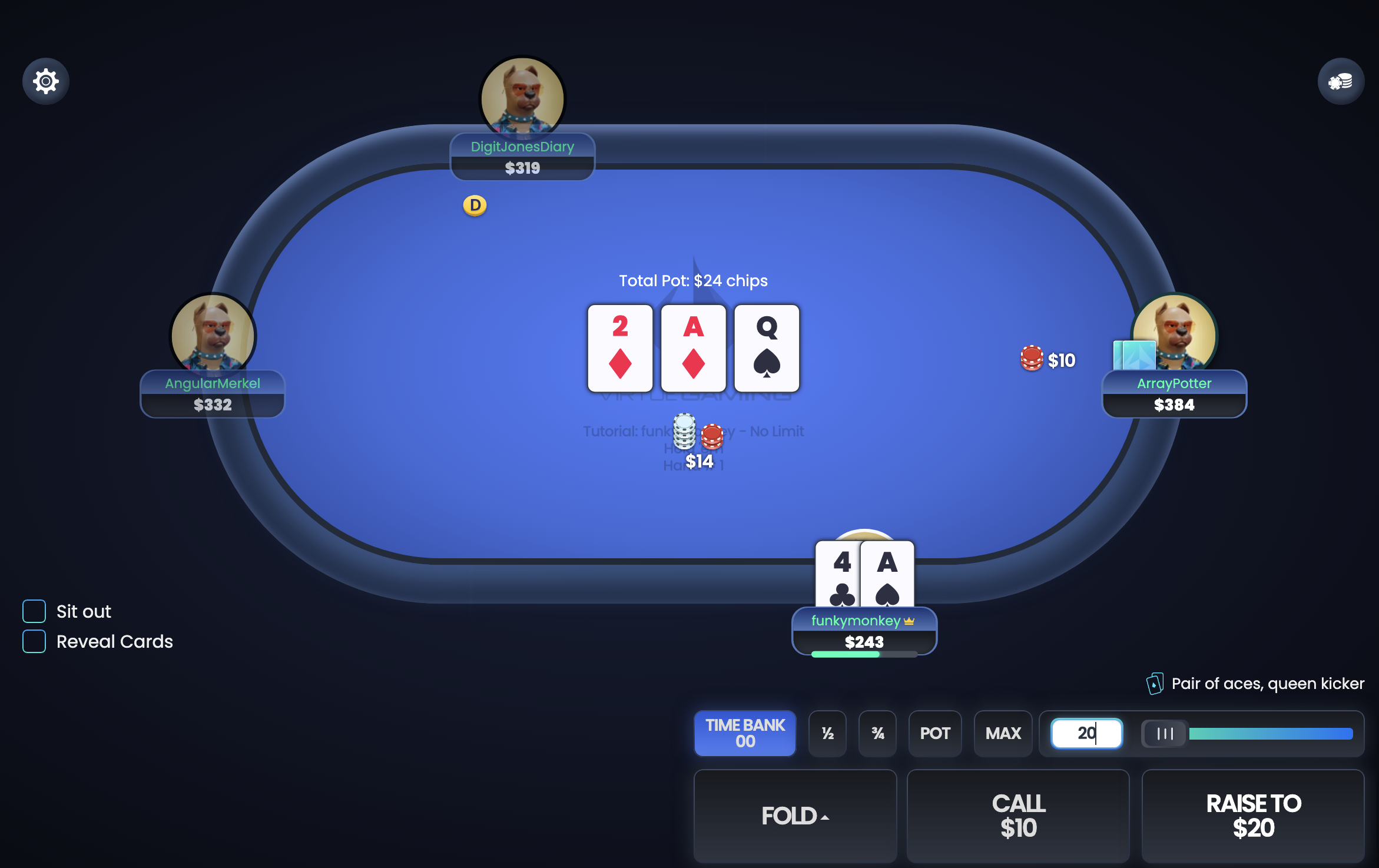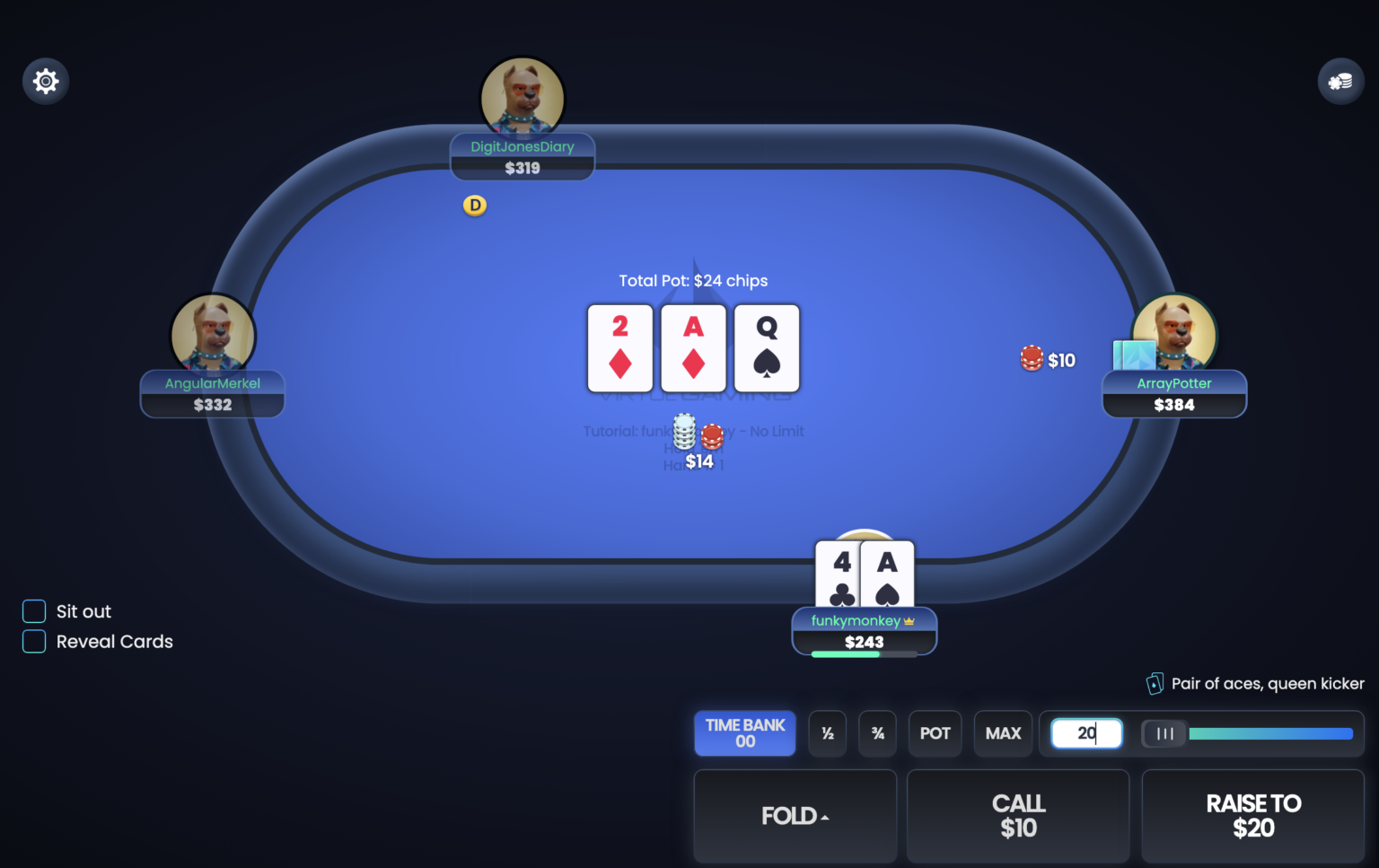Ryan Gittleson has been trying to get crypto and poker to work together for a long time. It hasn’t been easy yet, but his vision for Virtue Poker is finally coming to fruition.
Founded in 2016, his company was founded by Ethereum software giant ConsenSys for the purpose of decentralizing online poker. The company completed a $12.5 million token sale two years later and raised an additional $5 million in funding in 2021. (Disclosure: Decrypt was also incubated by ConsenSys, which remains one of our 22 strategic investors.)
Gittleson’s dream of a seamless on-chain poker experience – where strangers could purchase and cash out verifiably fair poker games via automated smart contracts – proved difficult for a number of reasons.
Social poker app PokerGO Play lands on Gala Games
First, the Layer-2 Ethereum scaling networks had not yet multiplied enough to allow rapid in-game transactions at a reasonable cost. Also important, facilitating such an unlicensed online gambling ecosystem is illegal in the United States and much of Europe.
So after another three years, Virtue got a gambling license from the small island of Malta and launched a legal, play-to-earn poker game in the US. But the company struggled to attract and retain users; last summer, Virtue was on the verge of collapse and the platform’s website went dark.
Until today. This morning, Gittleson launched the beta version of Virtue in an entirely new format, but one that is still dedicated to the company’s original mission: to use the tools and ethos of crypto to redefine poker for the modern age.
“It’s been really frustrating to spend all these years and still not get it working,” Gittleson said. Decrypt. “But I do believe that this vision can work, and that it can have an impact on the poker industry, which really hasn’t seen any innovation in the past decade.”

A look at the gameplay of the revamped Virtue Poker. Thanks to: Virtue Poker
The renewed Virtual poker will not facilitate in-game gambling with fiat money or cryptocurrency. Instead, it will provide an easy-to-navigate infrastructure for clubs and organizations around the world that want to host their own online poker games and tournaments. Specifically, Gittleson rebuilt Virtue to cater to NFT communities, which can now only offer token gate games for holders.
“I noticed that all of these NFT communities played poker weekly as a way to create engagement outside of the Discord chats,” Gittleson said. “A lot of them said they would like to do it more often, if it wasn’t so hard to organize.”
Any organization setting up a poker club on Virtue can customize their own online lobby and gaming area, where over 1,000 guests can play games including No Limit Hold’Em, Pot Limit Omaha and Short Deck. While the platform is currently free, Gittleson plans to eventually charge club organizers a monthly subscription fee, based on membership and usage.
Gittleson envisions NFT communities being able to incentivize members to participate in Virtue tournaments by offering winners NFTs and fungible tokens as prizes. They could also charge players’ buy-ins and simply handle the payouts manually, according to Gittleson.
However, the legality of such an arrangement is questionable: federal law currently prohibits anyone from knowingly accepting any form of payment to clear illegal internet gambling debts, and Virtue Poker is not a licensed gambling platform.
“We don’t handle the money, we don’t know if there is money or not,” Gittleson said. “And that makes this legal.”
At the time of writing, Virtue supports Ethereum and the scalable network Polygon, Solana, and the BNB Smart Chain, though it plans to expand to additional blockchains in the future. To celebrate the platform’s relaunch, Gittleson will host a private multi-table tournament on Thursday for holders of Virtue’s original token, VPP. The winner of the tournament is expected to receive $500 USDT.

